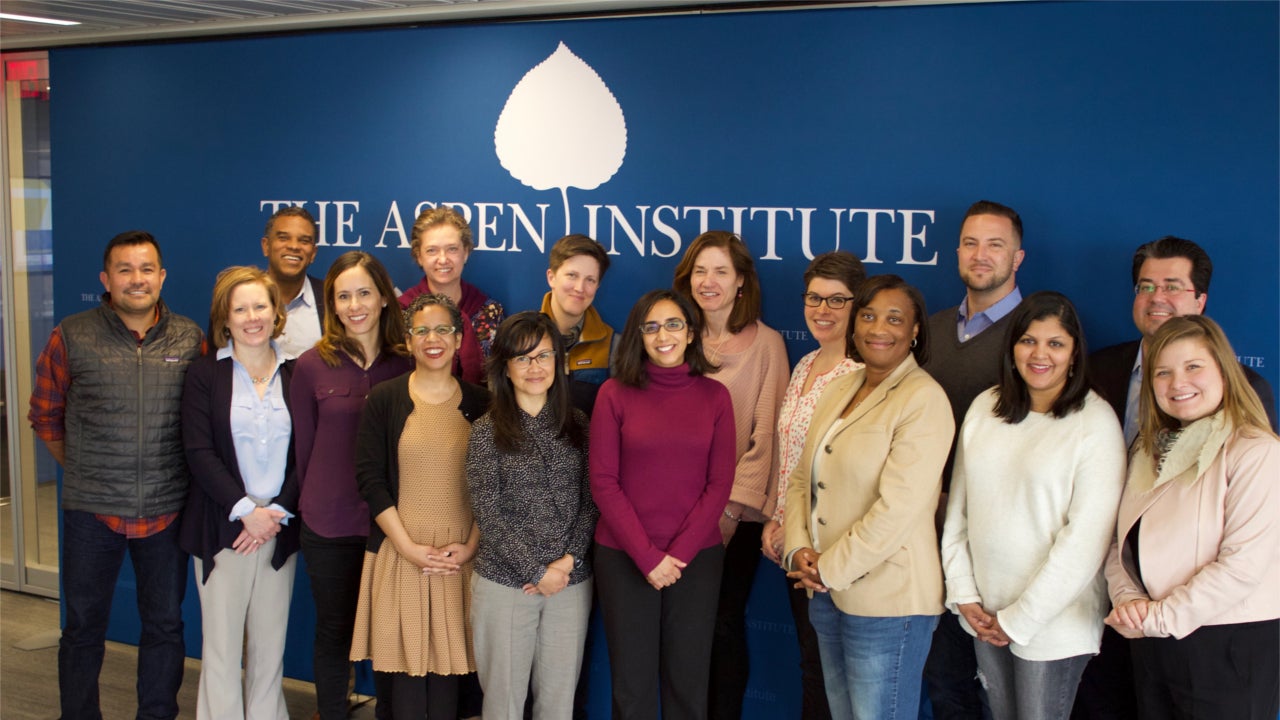
Job Quality Fellow, Class of 2017-18
Chief Program Officer, Chicago Cook Workforce Partnership
What is the challenge you are seeking to address?
In Chicago, as in other metropolitan areas, we are witnessing a decline in the middle class. This decline reflects rising income inequality that disproportionately affects African American, immigrant, and young adult workers. The world of work is changing, and the traditional social contract whereby employers invest in the wellbeing of their workers is fraying. In our current economy, too many of Chicago’s workers are being left behind.
Historically, public investments to combat income inequality have focused on education and skills training. This is the premise behind the Workforce Innovation and Opportunity Act, which seeks to provide a pathway into high-quality jobs by increasing workers’ skills. While training can be an important avenue for career advancement, there should be a fundamental baseline for job quality for all workers regardless of their job title or industry. At the Chicago Cook Workforce Partnership, we envision an economy in which all people entering or advancing in the workforce have access to high-quality jobs.
How does The Partnership work to promote job quality?
I serve as Chief Program Officer for the Chicago Cook Workforce Partnership, where I oversee programs and initiatives for a network of over 50 agencies with $70 million in public and private funding. The Partnership, co-founded in 2012 by Cook County President Toni Preckwinkle and Chicago Mayor Rahm Emanuel, is the country’s second-largest workforce development board and serves both job seekers and employers.
One of the key tenets of our organization is the dignity of work. We believe in the mutually beneficial impact that work has on individuals and the companies that employ them. Because we work closely with both job seekers and employers, we have a distinct vantage point from which to address job quality. For instance, we work with businesses and economic development agencies in the City of Chicago and Cook County to meet regional workforce needs. Once we build a level of trust and experience with an employer that uses our services, we can begin to have conversations with them about ways they can strengthen recruitment and decrease worker turnover through improved workplace practices. There are a variety of factors that make for a better workplace environment, and we help employers think broadly about their competitiveness through practices such as implementing stable scheduling and creating opportunities for workers’ voices to be heard. This is particularly important in our current tight labor market, as businesses are competing against one another for talent.
We also consider job quality as we think about the types of businesses we work with on behalf of our region’s job seekers. Before we invite employers to use our hiring and training services, we conduct site visits to assess businesses’ working conditions. We ask employers to evaluate their own labor strategy and challenges. Our Business Relations Specialists review the employer’s Human Resources policies and evaluate the employer’s approach and attitudes toward entry-level, middle, and high-skilled workers. This includes where and how they use temporary workers and how they invest their in-house training dollars. We also work closely with job seekers to help them evaluate the quality of job offers they receive through our agency, including whether the job provides opportunities for growth and career advancement.
Provide an example of how you have worked with businesses to improve job quality.
One of our employer customers is Flexan, a manufacturing company that prepares a part for hearing aids. Flexan had an immediate need to increase the number of full-time, permanent employees working in their company. Through discussions with their Human Resources Manager, we identified two challenges. First, the company’s hourly wages were $4 below the industry average of $13 per hour. This meant that temporary workers would gain experience in the company and, after 90 days, leave for higher-paying positions. Second, the company’s large temporary workforce created challenges for workplace culture. Full-time workers expressed frustration that temporary workers, who reported to a temp agency, had little accountability to company supervisors. Through our partnership, we identified the competitive industry wage for the positions the company was recruiting for and advised that they increase these wages. We also shared best practices from other companies that had converted their workforce from temporary to permanent status. Over time, FMI increased their wages to a competitive rate and slowly converted their workforce to permanent status. This helped create more stability for both the workers and the business.
What are your goals as they relate to job quality, and how is the Job Quality Fellowship supporting your work?
As a workforce board, I believe The Partnership can help set the standard for public investments in job quality. I have started discussions with two other Job Quality Fellows, Jenny Riggenbach and Christine Curella, to think about how we can each incorporate job quality measures – including wages, benefits, predictable scheduling, and workplace safety standards – to help decide where to direct our financial resources. While we each work in different roles and labor markets, we aim to develop a resource that can be used across our systems. The Partnership could use this tool to measure our success beyond the workforce system’s traditional performance metrics of job placement, wages, retention, and skills gains. We could also use the job quality indicators we develop to determine which businesses we invite to use our services and as a tool for job seekers to weigh different employment options.
In Chicago and Cook County, we have been fortunate to have elected officials who, in partnership with advocacy organizations and policy experts, have successfully passed increases in the minimum wage and paid time off ordinances. However, local government’s capacity to enforce new regulations, including educating employers and workers, has been limited. Through the Job Quality Fellowship, I would like to explore strategies for how The Partnership can work alongside advocacy and policy organizations to support stronger labor practices for the benefit of both employers and job seekers. I see Chicago as a lab where we can pilot programs and policies from which other cities, states, or federal departments can learn as we work to create a more vibrant and inclusive economy.
What will success look like for this work?
If our efforts are successful, we will help create a “virtuous cycle” whereby employers’ investments in their workforce contribute to increased worker engagement and retention and, in turn, improved productivity for businesses. It’s not inevitable that we have an economy in which only those at the top have quality jobs – it is possible to create an economy that works for all of us.
Share now
Tweet “It’s not inevitable that we have an economy in which only those at the top have quality jobs – it is possible to create an economy that works for all of us.” -Amanda Cage @ChiCookWORKS
Tweet “I see Chicago as a lab where we can pilot programs and policies from which other cities, states, or federal departments can learn as we work to create a more vibrant and inclusive economy.” -Amanda Cage @ChiCookWORKS
Tweet “One of the key tenets of our organization is the dignity of work. We believe in the mutually beneficial impact that work has on individuals and the companies that employ them.” -Amanda Cage @ChiCookWORKS
Keep in touch
Learn how the Aspen Institute Economic Opportunities Program is helping low- and moderate-income Americans connect to and thrive in a changing economy. Follow us on social media and join our mailing list to stay up-to-date on publications, blog posts, and other announcements.
We are grateful to the Ford Foundation and The Prudential Foundation for their support of this work.
